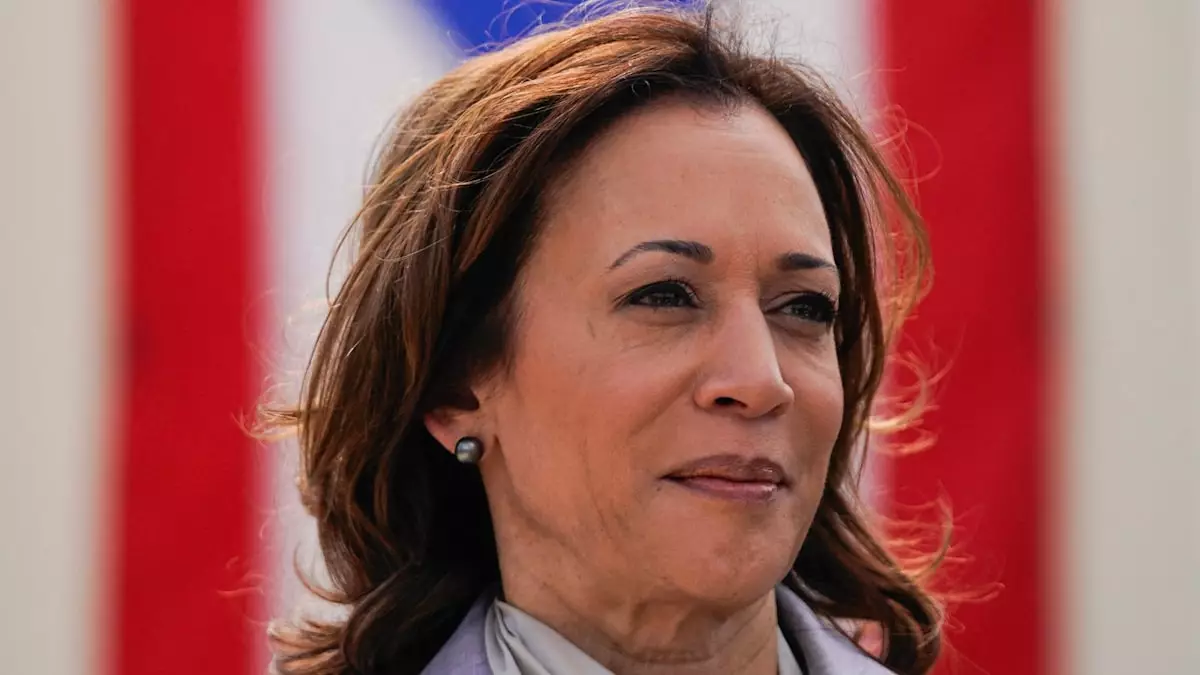Kamala Harris, the first female Vice President of the United States, is increasingly carving out her identity not only in the political arena but also in the world of fashion. Recently, she turned heads at the CBC Foundation’s 2024 Phoenix Awards dinner, an event designed to celebrate and elevate Black excellence. Accompanied on stage by former President Joe Biden, Harris donned a breathtaking black sequin dress that reflected both her status and the occasion. Created by rising star LaQuan Smith, a prominent Black American designer, the dress exemplified a perfect fusion of elegance and cultural significance, amplifying the message of the evening.
The choice of attire was not merely about aesthetic appeal; it resonated deeply within the context of political messaging and representation. At 59 years old, Harris showcased a style that melded avant-garde flair with a classic silhouette, featuring a striking high neckline and full sleeves. These design elements did more than enhance her appearance; they symbolized empowerment and reinforced her mission to redefine what leadership looks like in the modern era.
In a world increasingly aware of the power dynamics embedded in fashion, Harris’s choice of designer speaks volumes. LaQuan Smith, an emerging talent celebrated for his visionary approach, described the experience of dressing the Vice President as both a privilege and a reflection of his brand’s ethos. His acknowledgment that such moments validate the hard work of creatives underscores a broader narrative: fashion is a language of its own, capable of making statements about identity, culture, and values.
Smith articulated the joy that comes with seeing his creations worn by influential figures, emphasizing the potential of fashion to inspire and provoke thought. The relationship between fashion and culture—particularly among Black creators—is laden with history and emancipation. Harris’s elevation of Smith’s design on a notable platform not only highlights her sartorial choices but also serves as a canvas for celebrating Black artistry at a significant event.
As the political landscape shifts in the lead-up to the 2024 elections, Harris’s visibility is paramount. With President Biden announcing his withdrawal from the race, the potential for a Harris presidency is more tangible. If successful in her campaign, she would become the first woman elected to this office, an indelible mark in American history. The implications of such a first cannot be overstated, as it not only represents a break from historical norms but also opens the door for future generations of leaders.
In the lead-up to the election, celebrity endorsements are becoming increasingly visible, and Harris has garnered support from notable figures, including pop sensation Taylor Swift. Following a recent presidential debate, Swift took to social media to encourage her followers to research candidates and their policies, ultimately revealing her support for Harris. This endorsement not only amplifies Harris’s political presence but also connects her to a younger electorate that values authenticity and advocacy. Swift’s platform allows Harris to reach fans who may otherwise feel disconnected from traditional political messaging.
Harris’s candidacy embodies more than just a breakthrough for women; it also champions the rights of marginalized communities. Her journey underscores the importance of representation at the highest levels of government. In her public addresses and campaign rhetoric, she consistently champions causes that resonate with those advocating for social justice, equality, and comprehensive policy reform.
As the world watches, Harris is faced with both challenges and opportunities. Her commitment to advocating for underserved populations and her flair for impactful fashion uniquely positions her as a formidable candidate. As the election approaches, it will be fascinating to witness how her wardrobe choices continue to reflect her evolving political identity and aspirations.
Kamala Harris is not just a political figure; she is a style icon whose choices resonate with cultural significance and political ambition. The upcoming election will be a test not only of her policies but of her ability to inspire and mobilize an electorate eager for change. In her own right, she demonstrates that every aspect of a leader’s presentation— from fashion to rhetoric—plays a significant role in shaping public perception and influence.

